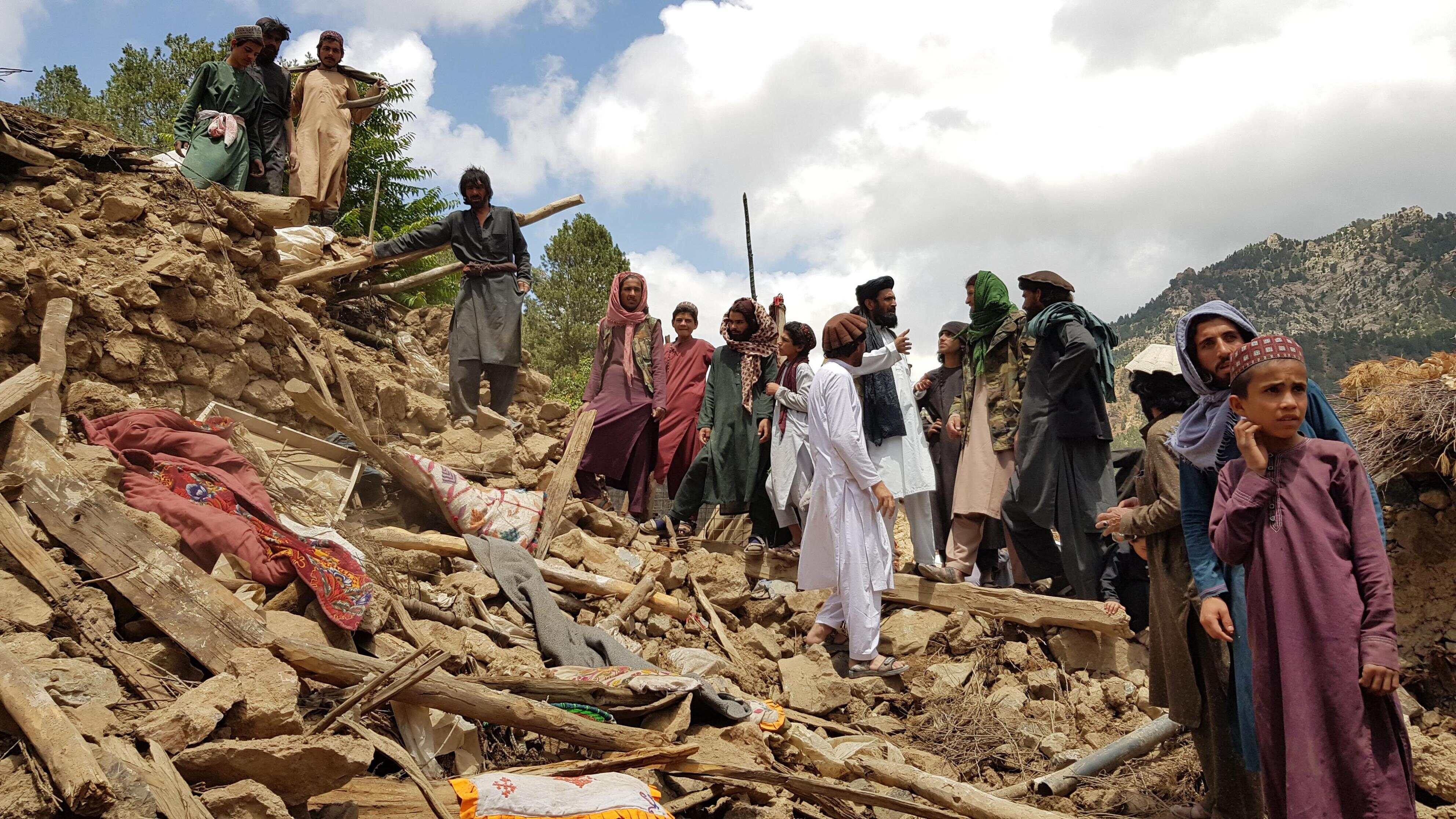A compounded crisis

The Wednesday earthquake has brought upon great destruction to the already battered population of Afghanistan — reeling under a steep humanitarian and economic crisis. The quake is also a huge test for the competence and capabilities of the one-year-old Taliban regime which lacks international acceptance and experience in dealing with such a crisis. While the catastrophe is an unforeseen phenomenon for the Taliban regime, the people of Afghanistan have been facing it all along throughout history. The 6.1-magnitude earthquake has killed at least 1,000 people and caused massive destruction in Khost and Paktika provinces — aligned with the Afghan-Pak border. Located in the eastern part of the country — at the collision point of Indian and Eurasian tectonic plates — the provinces are prone to earthquakes conventionally. The country, in general, is home to a number of fault lines including the Chaman fault, the Hari Rud fault, the Central Badakhshan fault and the Darvaz fault. Though the intensity of the recent earthquake is comparable to the ones that the country witnessed two decades ago during the end of the 20th century and beginning of the 21st century, earthquakes have been more of a regular phenomenon in Afghanistan. While the 2002 earthquake had killed over 1,000 people and 1998 earthquake had claimed almost 5,000 lives, more than 7,000 people have been killed over the past decade — 560 deaths annually! Geography as a prime factor apart, there has also been governance failure in addressing the perpetual problem. A large part of casualties and destruction can be attributed to the ill-planned dwellings in the rural eastern parts of the country. Very little has been done over decades to improve and re-structure the living environment of the people. Given the fact that the Taliban regime is already stretched financially and the international aid agencies have withdrawn from the country, sustainable improvement appears to be a far dream. It will be important to see how Afghanistan tides through this crisis. The Afghanistan government has allotted one billion Afghanis (Rs 87.53 crore) to provide aid and assistance to the affected people. Generally, in times of such a grave crisis, two things take the center stage — a robust infrastructural capacity within the country and strong support from the international community. Presently, Afghanistan is lacking both. The Indian Prime Minister has expressed his condolences and offered humanitarian aid while other nations including the UK, Japan and Pakistan also pledged support. The United States — which had been present in Afghanistan for decades — is still awaiting a request from the Taliban regime! The specifics of the potential aids are not clear as of now. It also remains uncertain as to what extent the aids could help the deeply battered Afghanistan. The alacrity and maturity of the Taliban regime will be put to test here. In the first place, as a responsible player, it must collect and furnish credible data and information around death and destruction throughout the country. Through its seriousness and sensitivity to stand up for the people of Afghanistan, the Taliban government stands a chance to gain some degree of credibility. Call it a despot or a democratic force, the Taliban presently has the huge responsibility of bringing the nation out of this sudden crisis. Its success on this front will largely depend upon what course of action it adopts — it can choose to make a shift towards democratic culture or cling to its rotten anarchic paths. Depending upon the approach it will adopt, the Taliban will lose or gain the confidence of its people and the international community. Giving official acceptance to the Taliban government may be a sovereign choice for individual countries but, in times of crisis, humanitarian aid should not be held back. For every effort by the Taliban regime, the world must reciprocate with empathy. It is only through the environment of trust and mutual cooperation, that a better world order can be achieved. An empathetic but firm response from the world may also drive the Taliban on a better path.



